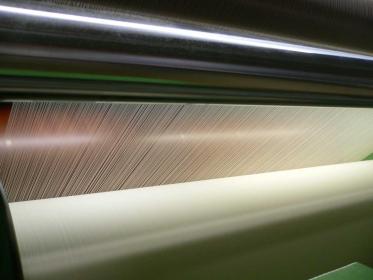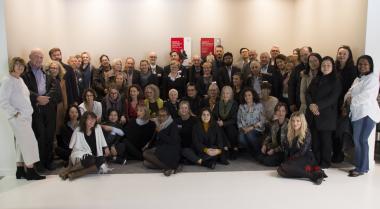International Cotton Conference Bremen 2018
- Innovative Textile Processes
Innovations are welcome. Based on innovations, many changes in textile processing are leading to more efficiency in process workflows. At the International Cotton Conference in Bremen on Wednesday, March 21st, Session IV Textile Processing, which takes place from 4:00 pm to 6:00 pm, is dedicated to this subject area and attractive examples.
Sustainable
Michael Tuschak, Mayer & Cie., Germany, informs about the 3-in-1 concept of Spinitsystems. Spinning, cleaning and knitting are all combined in one machine. This enables the production process of high-quality single jersey knitwear to be shortened significantly, which saves energy costs and reduces CO2 emissions.
Indigo.
An old dye returns to glory. Dr. Dean Etheridge of Texas Tech University, USA, talks about a new, innovative indigo dyeing process for cotton yarns using foam. This saves large amounts of water and is now increasingly being used by major brands in jeans production.
Efficient.
Amin Leder, Trützschler GmbH & Co. KG, Germany, presents a technique in which the stretching process for rotor yarn production does not take place in a separate machine, but is integrated into the carding. This makes it possible to efficiently process even cotton with a higher waste content.
Overview.
Harald Schwippel, from Rieter, Switzerland, summarises all four major spinning technologies for cotton – ring spinning, compact spinning, rotor spinning and air-jet spinning. His talk provides an overview of the possibilities that each of these processes currently offers for the manufacture of different yarns and the most efficient options for different applications.
More to know
In the run-up to the International Cotton Conference, the Fibre Institute Bremen and the Cotton Exchange are organising a specific seminar for spinning mills on Tuesday, dealing with the efficient handling of contaminants in cotton, from elimination in production to removal in winding. On Friday morning, Expert Session IX deals with the exchange of the latest research results, e.g. in the field of ginning in relation to cotton quality, or the important issue of checking the traceability of GMO-free cotton.
Elke Hortmeyer, Rainer Schlatmann, Baumwollbörse







